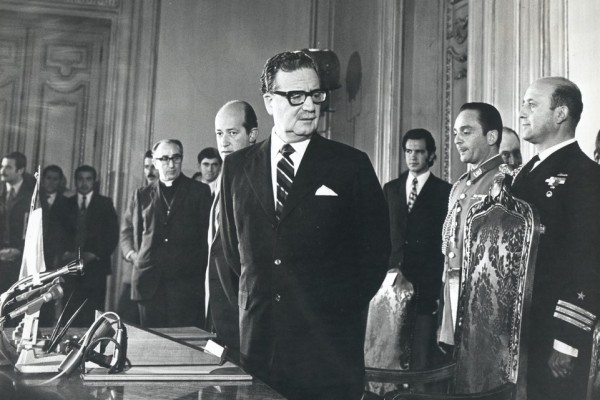-

After years of public pressure, Panama finally closes Canadian copper mine
On November 28, Panama’s Supreme Court ruled unanimously that the 20-year contract granted to Canadian mining company First Quantum is unconstitutional. The decision came after weeks of nationwide protests forced the government to announce a referendum on First Quantum’s contract for December 17. Now, however, the court seems to have decided the fate of the mine.
-
_600_400_90_s_c1.jpg)
Argentina is not for sale: Unions respond to privatization
Argentines weary of annual inflation soaring above 140 percent and a poverty rate that reached 40 percent have elected right-wing libertarian economist Javier Milei. He had campaigned on the promise to privatize state-owned enterprises, slash government spending, dollarize the economy, eliminate the central bank, and close key ministries, among them health and education.
-

Ottawa silent as Panama rises up against Canadian copper mine
The Cobre Panamá copper mine, owned by Vancouver-based First Quantum Minerals, is once against facing widespread grassroots resistance from Panamanian activists. As Owen Schalk explains, the mine, which is the largest foreign investment in the country, has remained a central focus of Panamanian protest movements for more than a decade.
-

Can Allende make it?
Cuba had been exciting, romantic, adventurous. The Chile of Allende appeared dull, tranquil, orderly. And for these very reasons, Chilean socialism was more dangerous. More dangerous in part because, if Chile could find a path to socialism without widespread violence ending in dictatorship, its example would effect a tremendous appeal throughout the world.
-

Ecuador just showed the world what it means to take climate change seriously
Ecuador just showed the world what it means to take climate change, biodiversity loss, and Indigenous sovereignty seriously, all with one national referendum. Canada is a rich country and one of the nations most responsible for climate change. It is long past time we catch up to reality and end our mad rush to burn the planet to the ground.
-

Ecuador oil drilling referendum a victory for biodiversity
On August 20, 2023, Ecuador held two major referenda, one regional and one national. As Owen Schalk explains, the results of these votes indicate an overwhelming preference for environmental preservation over the expansion of mineral and oil extraction—as well as the nation’s desire to move away from the right-wing, pro-business policies of Guillermo Lasso.
-

Violence surrounds Canadian mining projects in Ecuador
Two Canadian mining companies have drawn the ire of activists and Indigenous groups in Ecuador, where the government is using Toronto-based Adventus Mining’s Curipamba copper-gold project in Las Naves and Atico Mining’s La Plata project in Sigchos as test sites to impose a new and controversial process for environmental consultation under Decree 754.
-

EU-CELAC summit fails to convince Latin America to abandon neutrality
The history of Europe and the US in Latin America and the Caribbean is one of looting and carnage, colonization and slavery, invasions and coups. Is it any wonder that the nations of the region welcome positive relations with Russia and China, while viewing attempts to pressure them into abandoning these alliances as merely another stage in a long history of foreign intervention?
-
_and_the_Peruvian_navy_landing_platform_dock_ship_BAP_Pisco_(AMP-156)_conduct_tactical_maneuvers_in_the_eastern_Pacific_Ocean_during_UNITAS_LXII._(51535611938)_600_400_90_s_c1.jpg)
In Latin America and Asia, Canada supports the US government’s new Cold War
Ottawa has conscripted itself to Washington’s new Cold War, which aims to challenge the economic influence of its geopolitical competitors around the world. In Latin America and Asia, writes Owen Schalk, Canada is once more showing its foreign policy to be spineless, little more than a reflection of the demands of Canadian capital and the US empire.
-

Justice for Mariano Abarca
Environmentalists like Mariano Abarca face tremendous oppression from foreign-owned mining companies. This means, inevitably, that they face the wrath of Canadian companies, given that Canada-based companies make up 41 percent of the largest firms in Latin America. Community activists who oppose Canadian mines are frequently harassed, intimidated, or killed.



